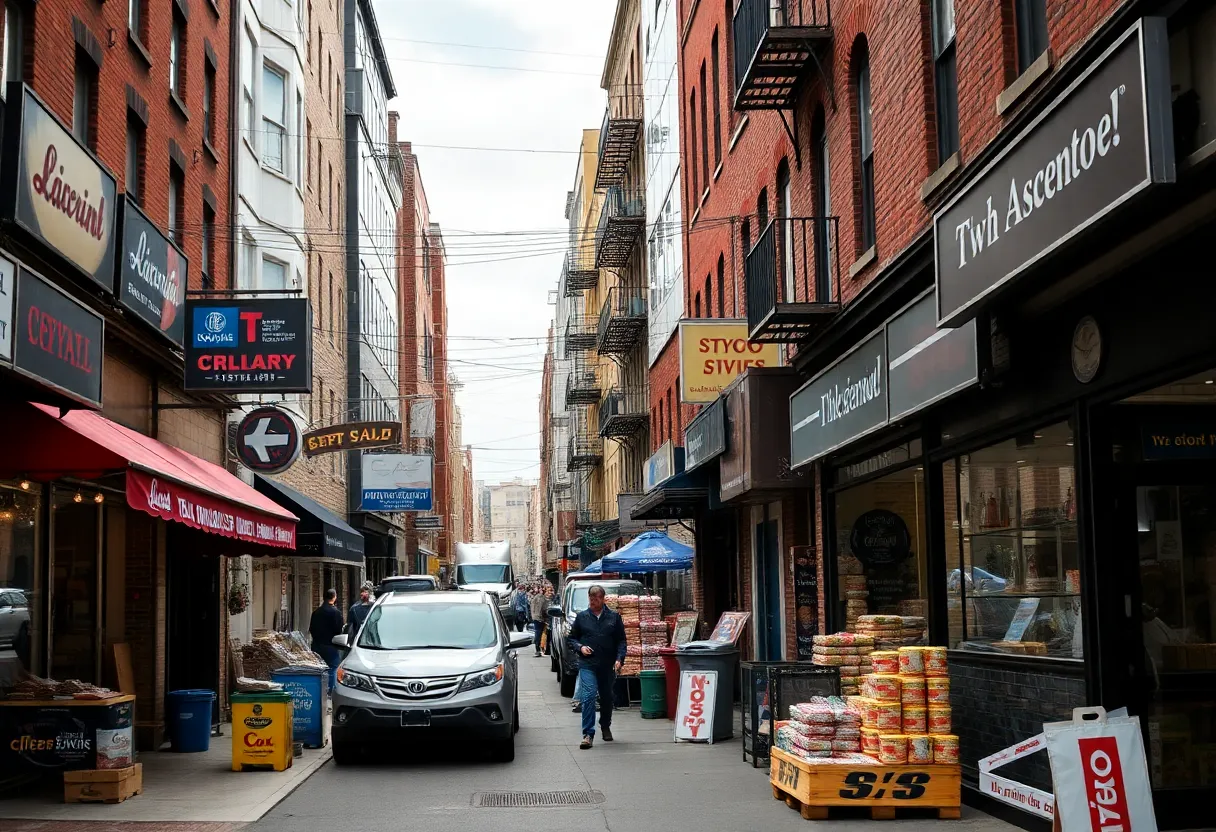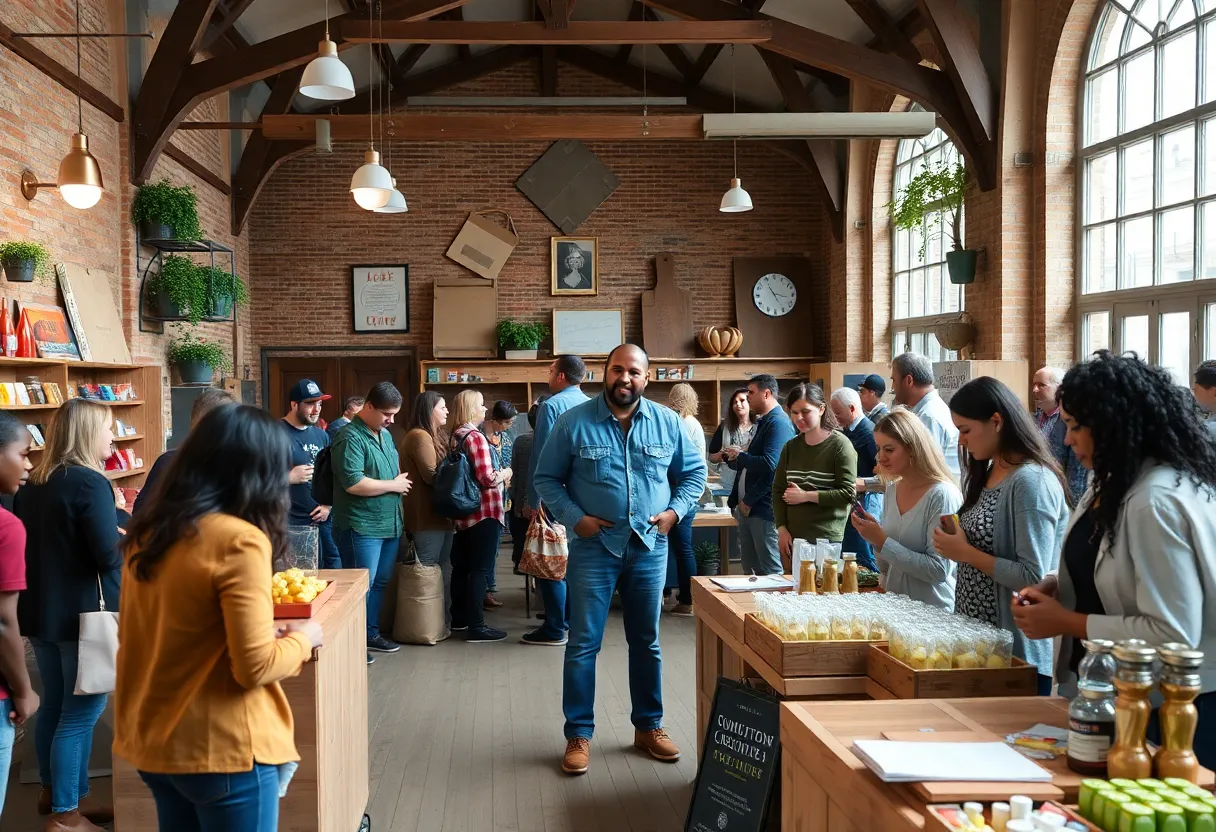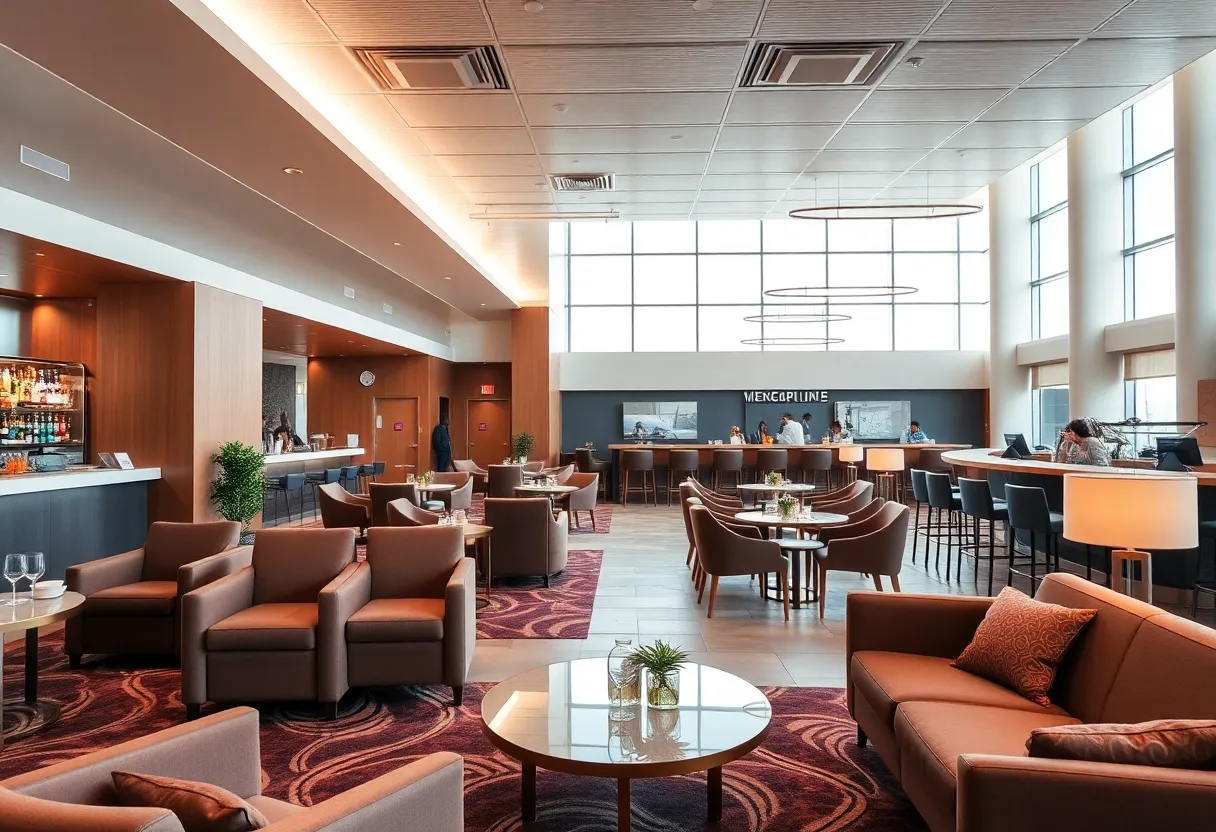News Summary
Philadelphia currently faces economic uncertainties as new federal tariffs threaten job losses and inflation. Experts caution that these tariffs could lead to significant price increases on imports, particularly affecting the city’s reliance on goods such as fruits and materials essential for construction. Small businesses are feeling the pressure to halt investments, while cultural events are impacted by fears among participants. The ongoing legal disputes over the tariffs add another layer of complexity as Philadelphia seeks stability amid these challenges.
Pittsburgh’s Economic Concerns Rise Amid New Tariffs
The city of Philadelphia is currently feeling the heat as economic experts and small business advocates express their worries about looming job losses and rising inflation due to the new tariffs imposed by the federal government. These tariffs, essentially taxes imposed on imported and exported goods at the point of entry into the country, could cause significant ripples in the local economy.
What Are Tariffs?
To put it simply, a tariff is like a sneeze in a quiet room; it disrupts everything. A recent tariff strategy has seen a 10% tax placed on all imports, leaving out energy imports, while increased tariffs have been suspended for the time being except for those on China, which have skyrocketed to a staggering 145%. This situation has left many experts scratching their heads and pondering the nation’s trade deficit, which they say is not as straightforward as it might seem. Some liken it to having a trade deficit with your plumber who provides an essential service.
Philadelphia’s Unique Trade Landscape
Interestingly, Philadelphia stands out as the largest importer of fruits in the United States. Additionally, it sees considerable imports of cars and construction materials, further raising concerns about a potential housing shortage as prices could skyrocket due to the tariffs. Consumption is a big deal in the U.S., making up 68.8% of GDP, and with Philadelphia heavily reliant on imported goods, residents may find themselves facing higher prices at local markets.
The city does enjoy a robust trade surplus in services, such as legal, engineering, tourism, and education. However, there’s an unease about the future as fears surrounding deportation of foreign workers and students grow, which could further diminish that surplus. As it stands, nearly 15.7% of Philadelphia’s population, totaling over 246,000 residents, is foreign-born, adding a layer of complexity to the situation.
Cultural Events and Community Impact
The atmosphere of uncertainty is palpable, even affecting cultural events within the community. For instance, the Carnaval De Puebla festival in South Philadelphia faced cancellation due to fears of deportation among participants, although plans for a smaller event are still on the horizon. Jennifer Rodriguez, the president and CEO of the Greater Philadelphia Hispanic Chamber of Commerce, highlighted the need for clear communication in these chaotic times, as the community seeks guidance amidst changing news headlines.
Small Businesses and Investment Hurdles
Many small businesses are keeping their cards close to their chest, putting their investment plans on ice because of this mix of uncertainty created by tariffs. The Greater Philadelphia Hispanic Chamber of Commerce has noted that local businesses, which may not offer prices as competitive as the national giants, still require focused investment to thrive. A vibrant local economy relies on these businesses, but with less overall investment, economic activity could stall.
Port of Philadelphia Facing Challenges
Meanwhile, the Port of Philadelphia, responsible for a remarkable 20% of U.S. food imports, has poured money into improving its infrastructure to better facilitate global trade. However, looming tariffs, including a proposed million-dollar fee for vessels built in China, could deter shipping companies from docking in Philadelphia, leading to potential job losses.
Legal Battles Ahead
As if the situation wasn’t complicated enough, a federal lawsuit has now been initiated by a dozen states, challenging the legality of the recent tariffs. They argue that these tariffs were imposed arbitrarily, lacking proper authority, which hasn’t been a practice seen in the last five decades. This legal battle will unfold at the U.S. Court of International Trade, located in New York City.
Final Thoughts
With tariffs being likened to a tax increase that will impact everyday consumers—just ask those in Arizona about the pinch—Philadelphians are bracing for what lies ahead. As the city continues to navigate these uncertain waters, the potential for inflation and job losses lingers, creating a climate of uncertainty that local leaders are hoping to address as swiftly as possible. Only time will tell how these tariffs will shape Philadelphia’s future.
Deeper Dive: News & Info About This Topic
HERE Resources
Economic Challenges in Pennsylvania: Impact on Harris’s Campaign
Mack Trucks Announces Layoffs in Lower Macungie Township
Pennsylvania’s Economic Landscape Shifts Under Tariff Strategy
Philadelphia Welcomes Major Investment from Roche
Philadelphia District Attorney Debate Takes Unexpected Turn
Major Layoffs Hit Mack Trucks in Pennsylvania and Maryland
Lehigh Valley Faces Job Cuts as Mack Trucks Announces Layoffs
Philadelphia’s Progress and Challenges Post-Pandemic
Challenges Mount for Philadelphia’s Food Assistance Programs
Philadelphia Faces Disturbing Events Amid Cultural Gatherings
Additional Resources
- Metro Philadelphia: Economic Concerns
- Axios: Craft Beer and Tariffs
- Philadelphia Inquirer: Tariffs and Trade War
- NBC Philadelphia: Lawsuits Against Tariffs
- Philadelphia Inquirer: Fruit Tariffs Impact
- Wikipedia: Tariff
- Google Search: Tariffs
- Google Scholar: Tariff Impact on Economy
- Encyclopedia Britannica: Tariff
- Google News: Tariff Effects







